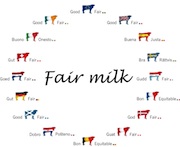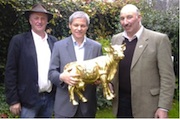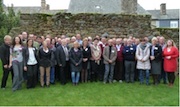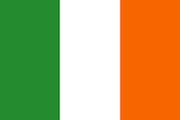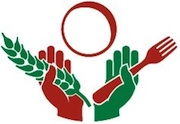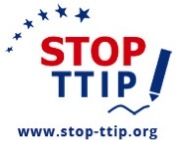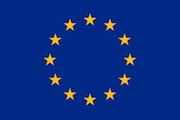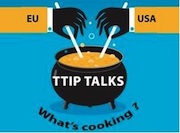EMB Newsletter December 2014
Newsletter as PDF
Contact
EMB - European Milk Board asbl
Rue de la Loi 155
B-1040 Bruxelles
Phone: +32 - 2808 - 1935
Fax: +32 - 2808 - 8265
Dear Dairy Farmers and Interested Parties
The situation in the European milk market is becoming dramatically worse. For months prices have been falling in every country. But that’s not all: when the milk quotas in Europe are abolished at the end of March 2015, the producers will face another price collapse.
The price paid by the Danish dairy co-operative Arla has dropped from a level above European average to a level below average, which means more than a 10-cent drop. It is deeply worrying, because we, the Danish dairy producers, need at least the same price as the best-paying dairies in Europe to cover national expenses incurred under environmental, animal welfare and other national laws plus interest rates on very large debts. Only a fair milk price will allow dairy farmers to cover the additional costs caused by necessary investments.
The reason for plummeting milk prices throughout Europe is the same: production is totally out of synch with the market, that’s why the market is flooded with milk. And when the last system of limits – the milk quotas – ends next year, the livelihood of many farms will be severely at risk. Four meetings of the EU Civil Dialogue Groups (CDG) and the Milk Market Observatory (MMO) have clearly shown that all participants from real life – the farmers, the industry, the buyers and the retailers – know that the situation is very critical. Only the EU officials can see in their old papers from spring that the market is functioning and the subsequent Russian import ban is compensated with money for private storage – of Italian Parmesan cheese. Who does the EU represent?
The milk producers are therefore urging politicians to implement the Market Responsibility Programme (MRP) developed by the EMB. This programme provides effective incentives for farmers to adapt their production volumes to the market. When demand then picks up again, normal production can be restored. The MRP must be implemented, or else it will be a catastrophe for Europe’s milk producers.
We – the members of the European Milk Board – are agreed that there is still much to be done in the European milk market. To make this unmistakably clear to the politicians, the EMB is planning a media campaign outside the EU Commission building in Brussels on 11 December. We are dangerously close to the crisis scenarios of 2009 and 2012. We will meet at 10:30 hours at the Schuman roundabout in front of the European Commission. We count on your support!
Kjartan Poulsen, Member of the EMB Board and President of the LDM Denmark
First European Fair Milk Conference
Awarding of the Golden Faironika – words of thanks from Dacian Ciolos
European milk producers warn against market liberalisation
Situation in Ireland
Switzerland: For food sovereignty - agriculture affects every single one of us!
Interview with David Handley, Chairman of the FFA
EU Commission sued by European Citizens’ Initiative against TTIP and CETA
Brief news
Events
EMB Agenda
The EMB Board’s key dates in December 2014:
- 4.12.: Meeting of the Dialogue Group with Commissioner for Trade Malmström
- 5.12.: Conference on the development of the agricultural markets (Brussels)
- 10.12.: TTIP talks: “What’s cooking?”
- 10.12.: Meeting with MEPs
- 11.12.: EMB campaign in Brussels “Europe is drowning in milk”
- 11.12.: EMB Board meeting
- 16.12.: Talks with the European Dairy Association (EDA)
- 19.12.: D19-20 mobilising forces against the TTIP and liberalisation
Impressum
European Milk Board asbl
Rue de la Loi 155
B-1040 Bruxelles
Phone: +32 2808 1935
Fax: +32 2808 8265
E-Mail: office@europeanmilkboard.org
Website: http://www.europeanmilkboard.org

